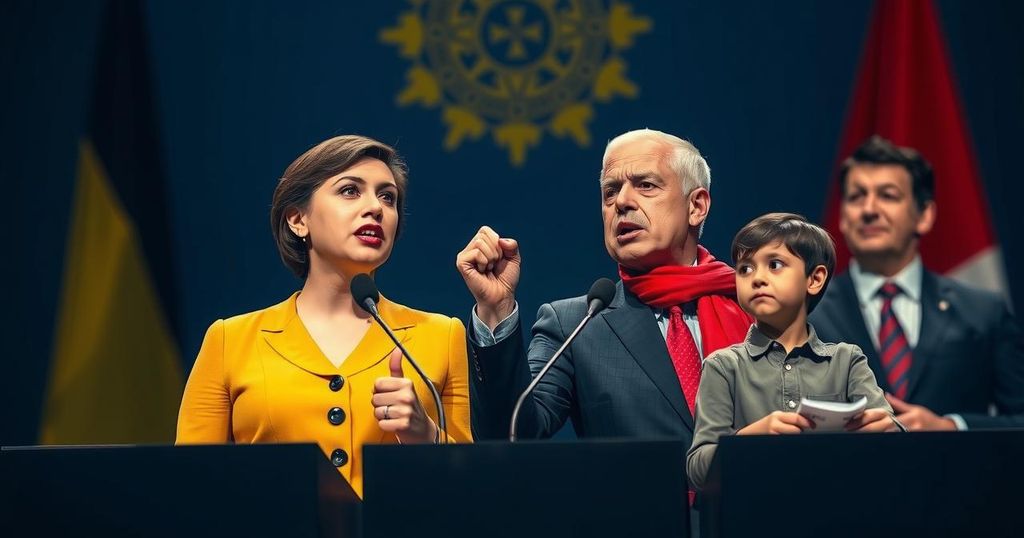Romania’s Presidential Election: A Crossroads for National Identity and Future Policy Directions

Romania’s presidential election on November 24 presents a competitive field with candidates from nationalist and leftist backgrounds. Key figures include Marcel Ciolacu of the PSD and George Simion of AUR. The outcome may require a runoff and will be critical in determining Romania’s political trajectory amidst rising tensions and domestic challenges.
Romania is preparing for a presidential election set for Sunday, November 24, 2024, which features a diverse field of candidates, including both nationalist and leftist options. Among the frontrunners are Marcel Ciolacu, representing the ruling Social Democratic Party (PSD), and George Simion from the far-right Alliance for the Unity of Romanians (AUR). The election is part of a broader electoral cycle that also includes parliamentary elections on December 1. Simion’s controversial political positions and allegations against him are set against a backdrop of significant geopolitical tensions in Eastern Europe. The election outcome is projected to necessitate a runoff on December 8, highlighting the divisions within Romanian society regarding foreign influence and domestic policies.
As the election draws near, candidates are refining their campaigns to resonate with voters’ priorities, particularly around themes of security, economic growth, and combating corruption. Ciolacu has articulated a vision for a more prosperous Romania, focusing on internal development and international respect, while Simion seeks to appeal to nationalist sentiments despite facing accusations of extremism. Other notable candidates include Elena Lasconi from the Save Romania Union and Mircea Geoana, a former NATO official running as an independent.
The upcoming election is crucial in shaping Romania’s political landscape, especially in the context of its relationships with the European Union and NATO amid the ongoing war in Ukraine. Analysts suggest that public sentiments regarding political stability and integrity will significantly influence voter turnout and candidate favorability in a nation grappling with longstanding political challenges, including corruption and extremism, which have strained public trust in the political establishment.
The electoral climate in Romania is characterized by a range of ideologies vying for dominance in the context of emerging challenges and geopolitical tensions. The country is at a critical juncture, facing a presidential election that could pivot away from mainstream politics toward more extreme nationalistic agendas. This election occurs alongside parliamentary elections that hold the potential to reshape Romania’s governance structure. With significant pressures stemming from both internal corruption issues and external conflicts in neighboring Ukraine, the stakes are high. Candidates must navigate the complexities of public sentiment concerning both national security and the political establishment in a bid to secure the presidency.
In summary, Romania’s presidential election on November 24, 2024, unfolds within a complex political landscape marked by nationalistic sentiments, allegations of extremism, and a pressing need for reform against corruption. The lead candidates, Marcel Ciolacu and George Simion, encapsulate the divergent paths the electorate may choose from. As the country approaches this pivotal electoral moment, the outcomes will likely resonate well beyond Romania’s borders, influencing regional stability and the nation’s role within the EU and NATO.
Original Source: apnews.com








